
The men's 200 metre freestyle event at the 2004 Summer Olympics was contested at the Olympic Aquatic Centre of the Athens Olympic Sports Complex in Athens, Greece. The event took place on 15 and 16 August. There were 59 competitors from 53 nations, with each nation having up to two swimmers.

The men's 200 metre backstroke event for the 1976 Summer Olympics was held in Montreal. The event took place on 24 July. There were 33 competitors from 23 nations, with each nation having up to 3 swimmers. The event was won by John Naber of the United States in world-record time; he was the first person to swim the event in under 2 minutes (1:59.19). It was Naber's fifth medal of the Games: completing a double in the backstroke events as well as golds in the medley relay and the 4×200 free relay, along with a silver in the 200 free. It was the second American victory and second American medal sweep in the men's 200 metre backstroke, after 1968; of the 12 medals from 1968 through 1976, 10 were won by Americans and the other two by Roland Matthes. Peter Rocca (silver) and Dan Harrigan (bronze) were the other two Americans, along with Naber, to reach the podium in 1976. The rules changed in 1984 to limit nations to two swimmers each, preventing further sweeps.

The men's 200 metre freestyle event at the 1976 Summer Olympics took place on July 19 at the Olympic Pool, Montreal. There were 55 competitors from 33 nations, with each nation having up to three swimmers. The medals were swept the United States, the only time there has been a medal sweep in the men's 200 metre freestyle. Bruce Furniss took gold, John Naber silver, and Jim Montgomery bronze. It was the second consecutive and third overall victory by an American swimmer.

The men's 200 metre freestyle event at the 1992 Summer Olympics took place on 26 July at the Piscines Bernat Picornell in Barcelona, Spain. There were 55 competitors from 39 nations, with each nation having up to two swimmers. The event was won by Yevgeny Sadovyi of the Unified Team; it was the first victory in the men's 200 metre freestyle by an athlete from the former Soviet Union since Moscow 1980. Anders Holmertz of Sweden repeated as the silver medalist, becoming the first man to win multiple medals in the event. Antti Kasvio earned a bronze medal in Finland's debut in the event.

The men's 200 metre freestyle event at the 1996 Summer Olympics took place on 20 July at the Georgia Tech Aquatic Center in Atlanta, United States. There were 43 competitors from 36 nations, with each nation having up to two swimmers. The event was won by Danyon Loader of New Zealand, the nation's first medal in the men's 200 metre freestyle. Brazil also received its first medal in the event, with Gustavo Borges taking silver. Bronze went to Australia's Daniel Kowalski.

The men's 200 metre freestyle event at the 2000 Summer Olympics took place on 17–18 September at the Sydney International Aquatic Centre in Sydney, Australia. There were 51 competitors from 44 nations, with each nation having up to two swimmers.

The men's 200 metre freestyle event at the 1984 Summer Olympics was held in the McDonald's Olympic Swim Stadium in Los Angeles, California, on July 29, 1984. There were 56 competitors from 36 nations, with each nation having up to two swimmers. The event was won by Michael Gross of West Germany, the nation's first victory in the event. His countryman Thomas Fahrner took bronze. Americans placed second and fourth, with Mike Heath earning silver and Jeff Float in fourth place.
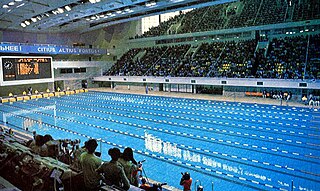
The men's 200 metre backstroke event at the 1980 Summer Olympics was held on 26 July at the Swimming Pool at the Olimpiysky Sports Complex. There were 25 competitors from 16 nations, with each nation having up to three swimmers. The event was won by Sándor Wladár of Hungary, with his countryman Zoltán Verrasztó taking second. Mark Kerry of Australia earned bronze. They were the first medals in the event for both nations. The United States' four-Games podium streak ended due to the American-led boycott.

The men's 200 metre freestyle event at the 1980 Summer Olympics was held on 21 July at the Swimming Pool at the Olimpiysky Sports Complex. There were 42 competitors from 24 nations, with each nation having up to three swimmers. The event was won by Sergey Koplyakov of the Soviet Union, with his countryman Andrey Krylov finishing second. The medals were the first for the Soviet Union in the men's 200 metre freestyle. Graeme Brewer of Australia won that nation's first medal in the event since 1968 with his bronze.
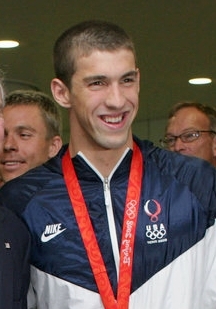
The men's 200 metre freestyle event at the 2008 Olympic Games took place on 10–12 August at the Beijing National Aquatics Center in Beijing, China. There were 58 competitors from 50 nations.
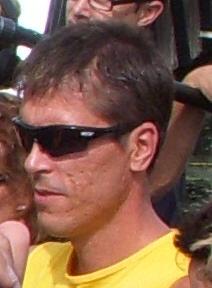
The men's 200 metre freestyle event at the 1988 Summer Olympics took place on 18–19 September at the Olympic Park Swimming Pool in Seoul, South Korea. There were 63 competitors from 41 nations, with each nation having up to two swimmers.

The men's 100 metre freestyle event at the 1952 Summer Olympics took place between 26 and 27 July at the Helsinki Swimming Stadium. There were 61 competitors from 33 nations. Nations had been limited to three swimmers each since the 1924 Games. The event was won by Clarke Scholes of the United States, the nation's second consecutive and seventh overall victory in the men's 100 metre freestyle. Japan, absent from the 1948 Games after World War II, returned to the podium in the event with Hiroshi Suzuki's silver. Göran Larsson earned Sweden's first medal in the event since 1908 with his bronze.

The men's 100 metre freestyle event at the 1956 Olympic Games took place between 29 and 30 November. There were 34 competitors from 19 nations. Nations had been limited to three swimmers each since the 1924 Games. The event was won by Jon Henricks of Australia, the nation's first medal in the event. Australia would win a second 0.4 seconds later and a third 0.9 seconds after that, sweeping the podium—the first sweep in the men's 100 metre freestyle since the United States did it in 1920 and 1924, and the first sweep of any event by Australian competitors. This year, the Americans finished fourth through sixth. It was the first time since 1924 that Japan had competed but not medaled.

The men's 100 metre freestyle event at the 1960 Olympic Games took place between August 26 and 27. There were 51 competitors from 34 nations. Nations were limited to two swimmers each, down from three in previous Games. The event was won by John Devitt of Australia over Lance Larson of the United States in a controversial, disputed finish that resulted in a push for electronic timing. It was Australia's second consecutive victory in the event, third-most all-time behind the United States' 7 gold medals and Hungary's 3. Devitt, silver medalist four years earlier, was the fifth man to win multiple medals in the event. Manuel dos Santos earned Brazil's first medal in the men's 100 metre freestyle with his bronze.

The men's 100 metre freestyle event at the 1964 Olympic Games took place between October 11 and 12. There were 66 competitors from 33 nations. Nations were again able to bring up to three swimmers each after a one-Games limit of two in 1960. The event was won by Don Schollander of the United States, the nation's first victory in the event since 1952 and eighth overall. Great Britain and the United Team of Germany both earned their first medal in the men's 100 metre freestyle.
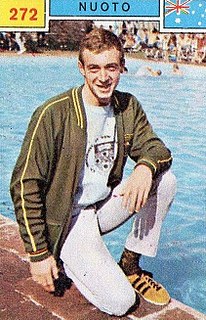
The men's 100 metre freestyle event at the 1968 Olympic Games took place between 18 and 19 October. There were 64 competitors from 34 nations. Nations had been limited to three swimmers each since the 1924 Games. The event was won by Michael Wenden of Australia, the nation's third victory in four Games. Americans Ken Walsh and Mark Spitz took silver and bronze, respectively.
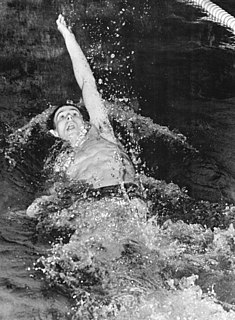
The men's 200 metre backstroke event at the 1968 Summer Olympics took place on 25 October at the Alberca Olímpica Francisco Márquez. There were 30 competitors from 21 nations, with each nation having up to three swimmers. The event was won by Roland Matthes of East Germany, the second gold medal for a German swimmer after Ernst Hoppenberg won in 1900. Matthes completed the backstroke double in the first Games both events were held, with Olympic record times in both. The United States, which had swept the podium in 1964, finished in the next three places behind Matthes: Mitch Ivey took silver, Jack Horsley bronze, and Gary Hall Sr. 4th.

The men's 100 metre freestyle event at the 1972 Olympic Games took place between September 2 and 3. There were 48 competitors from 29 nations. Nations had been limited to three swimmers each since the 1924 Games. The event was won by Mark Spitz of the United States, his then-record sixth gold medal in a single Games. It was the ninth victory in the event for an American, most of any nation. Jerry Heidenreich, also of the United States, took silver. Soviet swimmer Vladimir Bure earned bronze, the nation's first medal in the men's 100 metre freestyle.
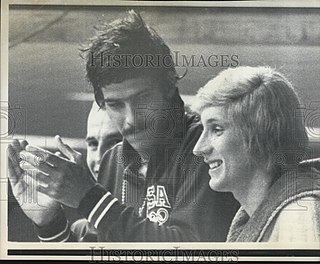
The men's 200 metre freestyle event at the 1972 Summer Olympics took place on August 29 at the Olympia Schwimmhalle. There were 46 competitors from 27 nations, with each nation having up to three swimmers. The event was won by Mark Spitz of the United States, the nation's second victory in the event. It was the third gold medal for Spitz in 1972, halfway to his goal of six. His teammate Steve Genter took silver, with Werner Lampe of West Germany earning bronze. Defending champion Michael Wenden of Australia finished fourth.

The men's 200 metre freestyle event at the 2012 Summer Olympics took place on 29–30 July at the London Aquatics Centre in London, United Kingdom. There were 40 competitors from 31 nations.




















